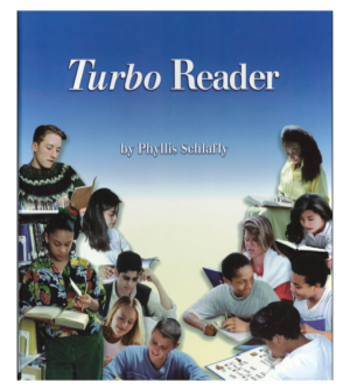Student Illiteracy Hits Higher Education
While much hand-wringing accompanies each round of dismal reading assessment results, nothing of substance ever seems to be done to remedy the problem. For many years, the National Assessment of Education Progress (NAEP) scores have shown a downward spiral in grades K-12, as Education Reporter and other news outlets have consistently documented.
A variety of issues have been singled out for blame, including the COVID-19 pandemic, economic disadvantages, racism; in short, everything but the failure to teach children to read using the proven phonics instruction method has been offered up as an excuse for rampant illiteracy. And although several dozen states have passed legislation stipulating that “the science of reading” (i.e., phonics and reading comprehension) be employed in reading instruction, scores have continued to plummet.
Most recently, administrators and professors are bemoaning the fact that many students arrive at the college level, including elite universities, unable to demonstrate basic skills in reading and math.
Last month, a story in The Atlantic complained about “elite college students who can’t read books.” The author, Rose Horowitch, quoted Columbia University Literature Humanities Professor Nicholas Dames as saying students “have become overwhelmed” by the university’s required great-books course, and that they “seem bewildered by the thought of finishing multiple books a semester.”
 Dames was astounded to find that many students had never been required to read an entire book in high school. “It’s not that they don’t want to do the reading,” he told Horowitch. “It’s that they don’t know how....,” which sums up the crux of the matter.
Dames was astounded to find that many students had never been required to read an entire book in high school. “It’s not that they don’t want to do the reading,” he told Horowitch. “It’s that they don’t know how....,” which sums up the crux of the matter.
Horowitch writes that some experts “attributed the decline of book reading to a shift in values rather than in skill sets,” which doubtless plays a role, but low reading test scores result from the neglect to teach reading in the early grades.
The 74 recently reported on a study involving nearly 170,000 students and 1,500 teachers in the 3rd through the 12th grades “based on the results of a screening assessment called ReadBasix,” developed by ETS, a global non-profit company that creates assessments to measure proficiency in a variety of areas.
The ReadBasix results support the findings of a “landmark 2019 study,” which showed that students who cannot decode (or sound out words) accurately and fluently are unable to comprehend what they read. This connection between the ability to recognize words and understand them is called the “Decoding Threshold Hypothesis, which posits that the relationship between decoding and reading comprehension becomes unpredictable when decoding falls below a threshold.”
The 74 reported:
- As many as 38% of Grade 5 students and 19% of Grade 10 students in our sample were below the decoding threshold. These students did not make any progress in their reading comprehension score in the following three years; their peers did. Thus, the decoding threshold provides a way to identify students whose reading comprehension will likely remain poor unless their decoding can be improved to a level above the decoding threshold.”
In other words, unless children are taught to read using phonics early on or as an intervention later, their ability to read and understand what they are reading will not improve.
Consequences of failure
One of the consequences of failing to teach young children to read is that they are likely to skip classes altogether or engage in disruptive behavior later on. The 74 wrote: “As students get older, their struggles with reading often show up in disruptive behavior or a pattern of avoidance in class.” When it’s time to read something in class, it’s time for students who struggle with reading to go to the bathroom or skip class altogether.
 In August, Education Reporter described the chaos and disorder many teachers experience in their classrooms on a daily basis. The article stressed that a remedy for such behavior is “sequenced, rigorous, and knowledge-based curricula,” which is obviously lacking in most K-12 reading and math instruction programs.
In August, Education Reporter described the chaos and disorder many teachers experience in their classrooms on a daily basis. The article stressed that a remedy for such behavior is “sequenced, rigorous, and knowledge-based curricula,” which is obviously lacking in most K-12 reading and math instruction programs.
Many middle and high school teachers rightfully assert it’s not their responsibility to teach basic skills, but as a result of their students’ inability to demonstrate such knowledge, “they are already assigning excerpts of books instead of full chapters.” Some educators recommend screening students in the later grades, and then persuading curriculum companies “to offer foundational materials for older students like they do for younger readers.”
While many parents remain in the dark about their children’s inability to read, it became obvious for others during and after the pandemic. One teacher’s eyes were opened by her 7-year-old daughter who was learning to read using phonics. “As I watch her develop,” she disclosed, “I’m thinking about my own students who are 14, 15, 16. I’m like, ‘Oh, maybe this is what they missed when they were her age.’” Phonics proponents believe this is precisely the case all too often.
(Foundational reading instruction, such as Phyllis Schlafly’s Turbo Reader, is readily available to help older learners achieve basic reading skills at home with the help of parents, guardians, or tutors. Phyllis’ First Reader and First Reader Workbook are perfect for teaching younger children. — Ed.)
Influence of ‘EdReports’
One reason for the lag in offering students more robust reading instruction may be the work of a non-profit organization called EdReports, that claims on its website “to increase the capacity of teachers, administrators, and leaders to seek, identify, and demand the highest-quality instructional materials.”
Last May, The 74 described EdReports as “a kind of ‘Consumer Reports’ for the multi-billion dollar K-12 publishing industry.” State and local education departments use EdReports’ reviews of curricula as a guide for adoption in their school districts. Unfortunately, since 2015, EdReports has pointed school districts “to curriculum materials aligned with Common Core standards.”
 An analysis by The 74 of “GovSpend, a data service that stores recordings of public meetings,” revealed the influence of EdReports. These data show that, since January 2021, EdReports and its recommendations have been mentioned more than 100 times during school board meetings.
An analysis by The 74 of “GovSpend, a data service that stores recordings of public meetings,” revealed the influence of EdReports. These data show that, since January 2021, EdReports and its recommendations have been mentioned more than 100 times during school board meetings.
One example of a missed opportunity to implement a potentially effective reading program happened in Ohio, as related by teacher and mom Tami Morrison, who discovered what she considered “a perfect way to help young children learn to read.” According to Morrison, the program, called Superkids, “slowly builds, introducing more and more sounds, and then it jumps right into blending those sounds into little words. At least two independent studies link the program to ‘significant positive’ results.”
But despite Morrison’s urging, Ohio’s department of education did not greenlight Superkids for the state’s K-5 reading program. The 74 stated: “At the time, Ohio leaders approved only programs that won EdReports’ coveted green rating. Superkids earned a more modest yellow.”
Education Reporter reviewed the Superkids program online and found it may have the capacity to effectively teach reading. A video on the website admits that children learn to walk and talk without much help from adults but that “reading is not hardwired in the brain.” Rather, it must be developed with “successful instructional experiences” built on “explicit, systematic phonics instruction and practice.”
The program features stories about the “Superkids” in a variety of adventures while developing phonics-based foundational skills. (This should not be regarded as a recommendation of the program by Education Reporter, but rather an observation that teachers and parents may wish to explore Superkids for themselves. — Ed.)
In an interesting about-face, EdReports recently told The 74 that its reviews of reading programs for young children “will reflect a fuller embrace of the science of reading.” The organization’s chief external affairs officer, Janna Chan, said that “phonics and fluency are now non-negotiable” for earning a “green rating.”
EdReports further says its reviewers will also verify that recommended materials no longer use “three cueing,” a practice decried by Education Reporter and others as it is part of the Whole Language method. Three cueing is the process by which children are taught to predict (guess) at words on a page using three cues: context, pictures, or syntax (e.g., is the word likely to be a noun or verb). In 2023, 8 states banned three-cueing from K-3 reading instruction because it fails to teach most children to read. These states include Florida, Indiana, North Carolina, Ohio, South Carolina, Texas, West Virginia, and Wisconsin, with more likely to follow.
The website ExcelinEd in Action.org notes that in 2020, an Education Week survey found that “75 percent of K-2 and elementary special education teachers” were using the three-cueing method to teach reading, and that “65 percent of colleges of education professors were still teaching it.”
Will phonics be restored?
The signs are encouraging that many K-12 public schoolchildren will soon learn to read by phonics in the early grades, but these should be viewed with caution. EdReports appears to have lost credibility, and other organizations are scrambling to take its place, but this doesn’t mean recommendations for good curricula will become the rule.
One potential competitor for EdReports, the Curriculum Insight Project, was introduced on Substack in January 2024 by literacy expert, Karen Vaites, who once advocated for EdReports but now openly challenges it. Vaites’ project vows to be “a collaborative effort to advance the conversation about curriculum quality and increase the transparency of the curriculum landscape. We want to make conversations about curriculum more substantial and tangible, in an effort to move the definition of ‘high quality’ beyond ‘all green’ on EdReports.” However, the project does not appear to have taken off as yet, although there is a website of sorts at eduvaites.org, and information about it still appears on both Substack and LinkedIn.
Meanwhile, today’s university students struggle with reading assignments and many ignore them altogether. As The Atlantic’s Horowitch wrote: “Some professors do find a few students up to the task but described them as ‘now more exceptions’ rather than the rule, with others ‘shutting down’ when facing difficult texts.” She added that the chair of the English department at Georgetown has said his students “have trouble staying focused on even a sonnet.”
The same level of illiteracy does not generally afflict private school students. Horowitch noted that professors find “a disconcerting reading-skills gap” among public-school students compared to those who attended private schools. The reason may be that private schools in general use a more rigorous method for teaching reading during the early grades, and teachers say parental involvement is also a factor, which may mean children who attend private schools actually learn to read at home.
Some universities are still assigning classic books in their literature courses. The Columbia College Literature Humanities program includes works such as Shakespeare’s Othello, Austen’s Pride and Prejudice, and Don Quixote by Cervantes, among others. However, according to the Fox News report previously quoted, “colleges in general have been reducing their reading load, albeit with some additions for diversity.” These additions include, for example, the divisive works of Ibram X. Kendi.
Horowitch wrote that Columbia has trimmed its reading list in the current school year. “It had been growing in recent years, even while students struggled with the reading, as new books by non-White authors were added.”
Although great rejoicing will be warranted in the event phonics reading instruction becomes commonplace and children actually learn to read in the early grades, the overarching concern will be what they are reading. K-12 school libraries are already awash in books containing explicit content and DEI woke propaganda. Concerned parent and citizen involvement on school boards and in departments of education will continue to be critical.
Want to be notified of new
Education Reporter content?
Your information will NOT be sold or shared and will ONLY be used to notify you of new content.
Click Here
Return to Home Page
